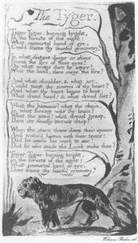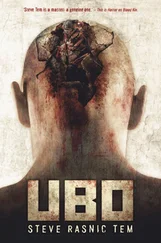Each morning we have patient care conferences: the young doctors, Dr. James Zachary—head of the program—and me. The young doctors periodically question Dr. Zachary about why he allows a patient to come along on these confidential conferences. And that, of course, is another part of the education, and why this is one of the greatest teaching hospitals of psychiatric medicine in the world.
The conferences are informal; they normally take place out in front of the hospital, on the sidewalk, as we visit the various bakeries, drug stores, news stands, and coffee shops that share the neighborhood. The establishment on the corner always has fifteen scalding cups of coffee waiting for us at precisely eight-fifteen.
The conferences, as Dr. Zachary conducts them, are always more theoretical and Socratic than specific-case oriented. He makes the new doctors think, stretch themselves, and question their preconceived notions about psychiatric diagnosis.
“The Newman girl. Fifteen years old. If you’ll remember, she has a history of difficulties with her parents, problems relating to peers, serious altercations with authority figures of all stripes: teachers, social workers, the police.”
“She’s schizophrenic.” There is always one very eager student the first week.
The young man begins to elaborate but I interrupt. I’m impassioned on the subject, perhaps too much so for my own good. I realize I risk a little more every day I stay here. “No, she’s not. That’s nonsense.” I turn to face the young man, who holds his coffee cup unsteadily, still not used to this sanctioned interruption by a patient. “Any talented psychiatrist can make a claim of schizophrenia in any person you care to name, and prove it adequately to his colleagues. Remember the meaning of the word, doctor: ‘as if split.’ You must not forget the ‘as if’ part. It is too easy; schizophrenia is a natural state of the mind. Pull something else out of your textbook, doctor.”
The young doctors quietly shift their attention to Dr. Zachary for the final word on the subject. He smiles that famous smile of his—a slight tensing of the lips that might be construed as illness in another man—and says, “Mr. Lippmann has a point, as usual. I suggest you think about what he has said.” And, again this year, the new doctors subtly change their attitudes toward me, because the great Dr. Zachary has certified my thoughts as worthy of contemplation.
We have this same interchange concerning the diagnosis of schizophrenia sometime during the first week every year. There is always a patient on the ward to use as an example, schizophrenic symptoms always being in good supply. I know that Dr. Zachary agrees with me on the subject, although he will never admit to it outright. That isn’t his strategy.
I originally came to the hospital because of another patient of Dr. Zachary’s. Forty years ago, Dr. Zachary was just beginning his rise to fame. His patient, Roger Ellison, was a friend of a friend. I seem to recall that my friend was distantly related to Roger in some way, but my memory of that bit of conversation may be an imagined one, although I would never use that word “imagined” in describing it to Dr. Zachary.
The three of us lived in a small hotel down by the waterfront. My friend and I were roommates. Roger lived on an upper floor. He would drop down and visit us occasionally, but I never knew him well. He was mainly interested in talking to my roommate, my friend.
Roger was a very sick individual; I would no doubt agree with any diagnosis the young doctors cared to make concerning him. The specific symptoms are irrelevant; as human beings, most of us have some knowledge as to what it truly means when a human mind is in serious trouble, regardless of the jargon brought to bear by those who are trained and paid to do so. Roger possessed a superior talent for making himself unhappy. That unhappiness took many forms, but it was remarkably stubborn in its ability to circumvent the most careful safeguards. Nothing brought joy or even satisfaction to his existence.
The night Roger poisoned himself my friend was away for the weekend. He pulled himself through my doorway—I’d left it open because of the heat—and called to me from the living room floor. I’d been in the kitchen preparing iced tea. By the time I got to him, his limbs were nearly paralyzed. He had an envelope in his hand—a will, I later discovered. He insisted I “take care of things.” He made me promise I wouldn’t turn the envelope over to the police. I’d never seen anyone die before. It was powerful, irresistible. This person whom I’d met, talked to briefly, yet scarcely known, had died on my living room floor. I could not refuse whatever he asked.
Later I found Dr. Zachary’s card in his wallet. The next day I called his office and made an appointment; I thought he could help me locate the family. I left a note for my roommate, my friend, telling him what had happened and where I was going to be. I’m sure I did. I haven’t seen him since.
Dr. Zachary’s office was smaller then, but just as quiet, as reverential, as it is now. I told him of the will. I handed it to him. He examined it. That was the first time I was to see his famous smile.
“And Roger left this with you,” Dr. Zachary began, “whom he hardly knew.”
“I was there when he died, the only one around. He died on my living room floor. It was a— profound is the word, I suppose—a profound experience.”
“I see. A profound experience.” He paused, looking at the will as if he were reading it, but I didn’t think he was, in fact, reading it. He had already read it several times. “I had not seen Roger in several weeks; he had broken numerous appointments. I assumed he had decided to give up on therapy.” He turned and gazed at me with what I thought might be mock-seriousness, but which probably wasn’t from him. “Therapy can be quite demanding, and a client will feel progress isn’t being made. But I assure you there is usually some progress, however invisible it might be to the client. Sometimes it takes years before you realize how much progress you have, in fact, made.”
His use of the second person pronoun bothered me. It sounded like a sales pitch. “Roger appeared to be a pretty disturbed individual,” I said.
“Oh? And what makes you say that?”
I hadn’t expected the question; I’d thought it was obvious. “He was terribly unhappy. At least, he acted unhappy, and agitated all the time, nervous.”
“Hmmm. Yes, Roger was unhappy. And yourself? Are you happy?”
“I—well, yes, I’m happy. Reasonably content.”
“Reasonably content. I see.” He glanced down at the will. “It says here that Roger wanted to leave most of his belongings to his mother and father. And yet, I know that his mother and father have been dead for years. How do you explain that?”
Dr. Zachary was frightening me. I suddenly realized that I might be in a very dangerous situation. “I don’t know. Roger was pretty disturbed.”
“Disturbed, you say? And yet you also say you hardly knew him.”
“Well, yes. But it didn’t take an expert to see…” Dr. Zachary smiled, and I halted my sentence.
“This will is typewritten,” he stated simply.
“Yes, it is.”
“Roger’s signature is also typewritten.” He smiled again. “Roger never signed this.”
“Well, talk to my roommate. He and Roger were related somehow. He’ll probably know more about it; he knew Roger well. They talked a great deal.”
“Yes,” he said, getting up. “I’m sure they did.” The interview was over.
Dr. Zachary informed me that they needed me to be available for further questioning, that matters of estate were quite serious affairs. He asked me if I would stay over as their guest while the authorities completed their investigation. I said yes.
Читать дальше












